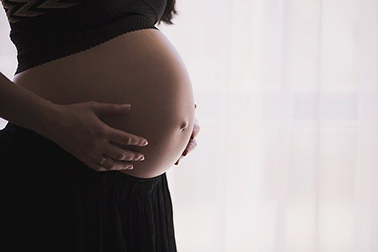Megan Grilliot, MD, obstetrics & gynecology specialist with Tanner Healthcare for Women answers some common questions.
Are pregnant women more at risk for contracting COVID-19 than the general population? Currently, there is no evidence that pregnant women are at greater risk for contracting COVID-19 or becoming severely ill from the disease. There is, however, much that is still unknown about this illness. With many respiratory illnesses, most commonly with the influenza virus (flu), being pregnant does put women at much greater risk of becoming severely ill. With this particular respiratory illness, there is not yet evidence of that. But again, we are still relatively early on learning about the COVID-19 virus.
What are prenatal appointments like now? Are you encouraging Telehealth visits or in-person visits? We have continued to offer robust, comprehensive prenatal care. Receiving prenatal care is considered an urgent need. We have tried to use those in-person visits as efficiently as possible. For example, in the past you may have had bloodwork during one visit and an ultrasound at another visit. We’re trying to consolidate that care as much as we can.
Should a pregnant woman stay at home and isolate herself? The recommendation right now from the Centers for Disease Control and Prevention (CDC), American College of Obstetricians and Gynecologists (ACOG) and from our practice is that pregnant women should be following social distancing practices – and that includes only being out in public for urgent needs. If that urgent need arises, including when they come in for their prenatal visits or care at the hospital, we are advising that a facial mask be worn, frequent hand washing be performed and that they not touch their faces. This is what is being recommended for everyone, but mothers-to-be should be especially careful.
Can the coronavirus be passed from mother to child in utero? Can it be passed from mother to child through breastmilk? Currently, there is no evidence of that. There have been several cases where there has been concern for either transmission from mother to baby in utero (prior to birth) or for potential transmission during the birthing process. But so far, none of those cases – even where there was concern – have been confirmed. In cases where newborns have tested positive shortly after birth, so far, they have all been linked to exposure to respiratory droplets after birth. Also, evaluation of breast milk has not shown instances of live virus in the milk, but this testing is also limited so far.
What happens when it’s time to go to the hospital for the birth? Tanner is following CDC, ACOG and American Academy of Pediatrics (AAP) guidelines to ensure the highest safety for our mothers and newborns. When women come in to the hospital, one of the first things she will notice is that everyone she meets will be in a higher level of personal protective equipment (PPE). We will all have on some sort of eye protection and masks. Infection prevention is something we do every day, for every patient – but now we are ramping up those standards even higher.
Can the baby’s father or other support person be in the delivery room? What about other relatives or friends? We recognize that having a support person with you through the birth of your child is very important. We want someone there with our mothers when these new lives come into world. For the safety of our moms, their babies, our staff and our community, we are limiting visitors to just one person to reduce the risk of exposure. In addition, everyone who comes into the hospital is screened, and we ask that patients and visitors bring a face mask or one will be provided for use during the patient’s stay.
After the baby is born, can loved ones visit? We are only allowing one visitor (the same person) during the entire birthing process. Use of electronic communication, such as FaceTime, is encouraged to help facilitate the circle of support.
What should a pregnant woman do if she begins exhibiting symptoms of the coronavirus? She should call her obstetrician immediately to share what symptoms she is experiencing so we can advise her about an evaluation, testing and self-quarantining to limit exposure to her loved ones and other members of the community. Most obstetricians are not performing COVID-19 testing at their offices, so she should call first before coming to the office.
What precautions should parents take after bringing their baby home from the hospital? This is an especially challenging time for new mothers. Typically, when you bring a new baby home, you want all the support around you that you can get; you want grandparents there and other close family members. They are supporting you in caring for this new life. But at this time, especially with everything that is unknown and starting to become of concern – especially with children – we ask that that families consider limiting that physical exposure. In our community and across the country, we are seeing a concerning increase in postpartum depression because these moms do not have the support around them that they usually would. These moms are going home from the hospital and they are often alone. It is very hard to know how to balance physical health in light of COVID-19 with the emotional and mental toll that not having others around is taking. It is so important to try to connect safely as much as you can. For example, reaching out through phone calls, FaceTime and Skype can help you stay close with friends and loved ones. We are fortunate to have tremendous mental health resources within Tanner Health System, so we want our moms to speak up. If a new mother is struggling, she should always feel free to reach out to us, your obstetrician, for help. We want to continue to be there for you.




